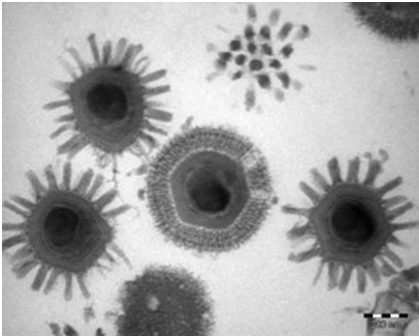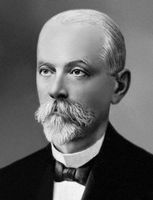Viruses have several physicochemical properties including pH, molecular size or mass, stability to heat and […]
Tag: viruses
ECONOMIC IMPORTANCE OF VIRUSES
Though they are known to cause plethora of infectious diseases in man, plants and animals; […]
Characteristics of Viruses
WAYS IN WHICH VIRUSES DIFFER FROM OTHER LIVING CELLS Viruses as differ tremendously from other […]
DMITRI IWANOVSKI (1864-1920)
Dmitri Iwanovski was a Russian botanist, and one of the discoverer of filterable nature of […]





